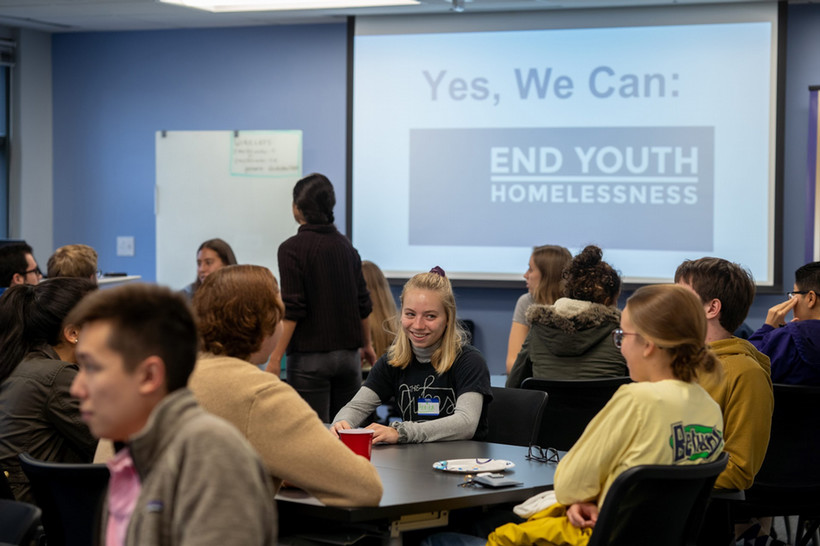
The purpose of this pedagogy is “to enrich scholarship, research, and creative activity; enhance curriculum, teaching and learning; prepare educated, engaged citizens; strengthen democratic values and civic responsibility; address critical societal issues; and contribute to the public good” (Public Purpose Institute, 2021, para. 13). JMU students have reported that CEL facilitates deeper engagement with course material, increases their sense of intrinsic motivation, and broadens their view of class content. By applying classroom content to the community this pedagogy provokes learning and engagement through wicked problems, complex individual stories, and dissonance.
According to a national longitudinal study of 22,236 undergraduates (Astin, et al., 2000), CEL can have significant positive effects on:
- academic performance (GPA, writing skills, critical thinking skills)
- values (commitment to activism and to promoting racial understanding)
- self-efficacy
- leadership (leadership activities, self-rated leadership ability, interpersonal skills)
- Provides a high impact, engaging learning experience that allows students to put theory to practice
- Increases students critical thinking and inspires thoughtful questions in class discussions
- Diversifies teaching approach and allows course content to be accessible across a wide range of learning styles
- Provides an opportunity for community-based, collaborative research
- Creates an opportunity for reciprocal learning between students, faculty and community partners
- Incites a deeper understanding of course content through a practical learning experience
- Enhances critical thinking, problem-solving, and cognitive complexity
- Provides an opportunity to learn about social issues and explore values, beliefs, and ethics
- Offers context for the exploration of interests and values in a potential career path
- Fosters intrinsic motivation and lifelong learning
- Leverages university resources for common priorities and the greater good
- Grows the organization’s volunteer pool and brings new energy, enthusiasm, and perspectives
- Produces useful data and community-based research
- Provides networking opportunities and increases the organization’s visibility and influence
- Sustains organization by preparing students to be next generation of engaged citizens and community leaders
Additional Resources
- How Service Learning Affects Students: Executive Summary (Astin et al., 2000)
- How College Affects Students: A Third Decade of Research (Pascarella & Terenzini, 2005)
- A Meta-analysis of the Impact of S-L on Students (Celio et al., 2011)
- Why We Use Service-Learning: A Report Outlining a Typology of Three Approaches to This Form of Communication Pedagogy (Britt, 2012)
- A Community-Engaged Faculty Typology: A Self-Referent Approach to Understanding Faculty Perspectives (Morrison & Wagner, 2017)
- The Power of Experiential Education (Eyler, 2009)

